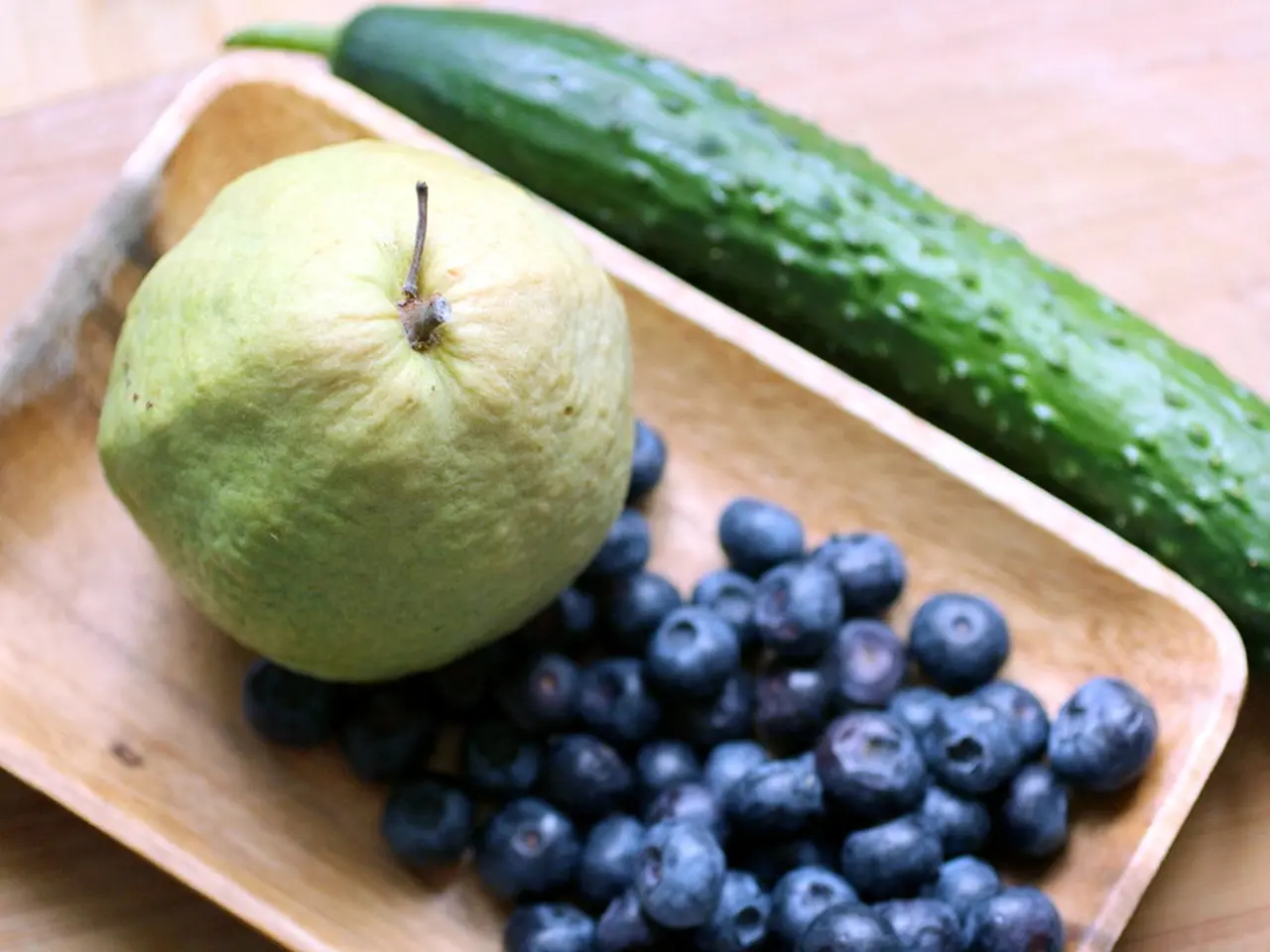Cucumber'sbitter taste: the reasons behind it and means to prevent it
Cucumbers, a staple in many gardens and kitchens, can sometimes develop a bitter taste due to various growing conditions. This article aims to shed light on the common causes of bitterness in cucumbers and provide some solutions to help grow delicious, crisp, and flavourful fruits.
One of the most prevalent causes of bitterness is irregular watering. Lack of regular watering is the most common culprit, but over-watering can also lead to bitterness. It's essential to ensure that cucumber plants receive 8 to 12 litres of warm water per square metre, with the water penetrating the soil to a depth of 20 cm, especially during periods of drought.
Hot weather and inconsistent watering can stress zucchini plants, prompting them to produce bitter and toxic compounds called cucurbitacins. These compounds serve as a natural defense mechanism and contribute to the bitter taste in the fruit. To prevent this, it's advisable to mulch around the plants to protect the soil from overheating and drying out.
Another factor that can cause bitterness is insufficient or excessive light. Greenhouses should be placed in areas with ample sunlight to ensure proper growth, while avoiding constant shade. If there's too much sun, plants should be shaded to prevent them from getting overheated.
The soil's nutrient balance is also crucial. Both a lack of potassium or nitrogen, as well as excessive use of fertilizers, especially nitrogenous ones, can lead to bitterness. It's important not to overdo it with fertilizers, as excessive use can also cause bitterness. In the second half of July, cucumber plants can be fertilized with cow manure, and in August, with the addition of potassium salt.
Temperature fluctuations can negatively affect cucumbers. Greenhouses should be closed if it's cool at night, and in open ground, plants should be protected with a covering material. sudden temperature fluctuations, overheating of the soil, and late harvesting can all contribute to bitterness.
Some cucumber varieties have a genetic predisposition to accumulate cucurbitacin, especially when grown in open ground. If cucumbers turn out bitter, peeling them can help reduce their cucurbitacin content, as the main concentration of the substance is in the skin.
Modern hybrids are usually free from the drawback of bitterness due to selection. Choosing cucumber seeds resistant to cucurbitacin formation is advised for a more enjoyable growing experience.
Rosselkhoznadzor, the Russian Federal Service for Veterinary and Phytosanitary Surveillance, states that both greenhouse and ground cucumbers can taste bitter. They recommend regular fertilization and careful management of watering, light, and temperature to ensure the best possible cucumber harvest.
By understanding these factors and taking the necessary precautions, gardeners can cultivate cucumbers that are not only visually appealing but also delicious and enjoyable to eat. Happy growing!








